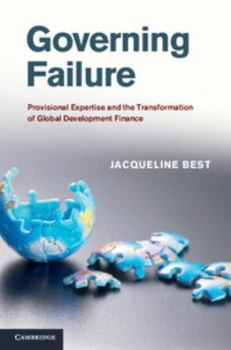Governing Failure: Provisional Expertise and the Transformation of Global Development Finance
Jacqueline Best argues that the 1990s changes in IMF, World Bank and donor policies, towards what some have called the 'Post-Washington Consensus, ' were driven by an erosion of expert authority and an increasing preoccupation with policy failure. Failures such as the Asian financial crisis and the decades of despair in sub-Saharan Africa led these institutions to develop governance strategies designed to avoid failure: fostering country ownership, developing global standards, managing risk and vulnerability and measuring results. In contrast to the structural adjustment era when policymakers were confident in their solutions, this is an era of provisional governance, in which key actors are aware of the possibility of failure even as they seek to inoculate themselves against it. Best considers the implications of this shift, asking if it is a positive change and whether it is sustainable. This title is available as Open Access on Cambridge Books Online and via Knowledge Unlatched.
Format:Hardcover
Language:English
ISBN:110703504X
ISBN13:9781107035041
Release Date:March 2014
Publisher:Cambridge University Press
Length:284 Pages
Weight:1.14 lbs.
Dimensions:0.8" x 5.9" x 9.0"
Customer Reviews
0 rating





